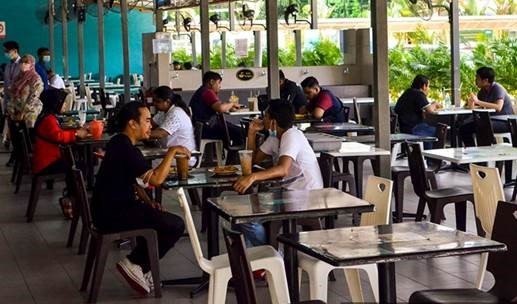
Come May 15, all economic sectors in Malaysia would have fully reopened. The last sector to reopen involves the nightclubs, which would resume business on that date, much to the delight of their operators, whose premises have been forcibly shut since March 2020.
As the nation inches closer to pre-pandemic “normalcy”, are we ready to embrace the business landscape that has been reshaped by Covid-19?
Malaysians are often too rigid when it comes to embracing change. As a businessman with extensive dealings with China, I can attest that we are worlds apart when it comes to dexterity and adaptability. We are often more reactive than proactive. This is a liability in the cutthroat globalised world, where delays and hesitation can result in billions of ringgit in losses.
Rightfully, the pandemic should have been a wake-up call to Malaysian businesses to become more agile and forward-looking. Alas, this is not happening.
I would like to cite two examples. The first is the rubber glove industry since I am a vendor in this sector. During the pandemic, as local companies were drowning in a sea of red ink, glove manufacturers were making a killing following the global spike in demand for the medical gloves due to the pandemic.
Overnight, companies like Top Glove and Hartalega became investors’ darlings in the midst of a global recession. Even companies with no gloves-manufacturing history, like Mah Sing, jumped on the bandwagon, hoping to make a quick buck.
But now, as global Covid-19 infection rates dive and the world begins to look “normal” again, glove manufacturers are facing an uncertain future. Questions are being raised about whether the billions ploughed in to build plants and increase capacity will make good returns, if any.
This is symptomatic of our propensity to rush into things and inability to adapt quick enough.
This is why I believe that the reminder by plantation industries and commodities minister Zuraida Kamaruddin that manufacturers tap into non-medical industries is timely.
She hit the nail on the head by saying manufacturers should be creatively exploring ways and means to make the glove industry lucrative and thriving again, although certainly not at the similar pace when demand was soaring and average selling price skyrocketed to record levels.
As one of the largest producers of natural rubber in the world, our glove manufacturers have an advantage and it’s time we leverage on that.
The other example I would like to cite is the banking industry. Recently, Bank Negara Malaysia announced the list of consortiums that will receive the first digital banking licences in Malaysia.
It is a long-anticipated announcement considering how online banking saw an exponential rise during the pandemic. But I do not think local banks are ready to face the onslaught of borderless banking afforded by technology, especially competition from the bigger banks worldwide.
On top of that, banks and even regulators have to contend with the rise in usage of cryptocurrency, which is now getting more popular, particularly among the urban and tech-savvy folk. Banks need to pull up their socks or risk being drowned by this technological wave.
The above are just two examples where we need to adapt. But this need is not industry-specific in a globalised world. As the world becomes more interconnected, the ability to learn and to adapt to change is imperative. We have to up this game as we return to post-pandemic normalcy. We need to swim with the tide, failing which we will sink into obscurity.
Source: https://www.freemalaysiatoday.com/category/opinion/2022/05/05/upping-the-game-in-pre-pandemic-normalcy/

